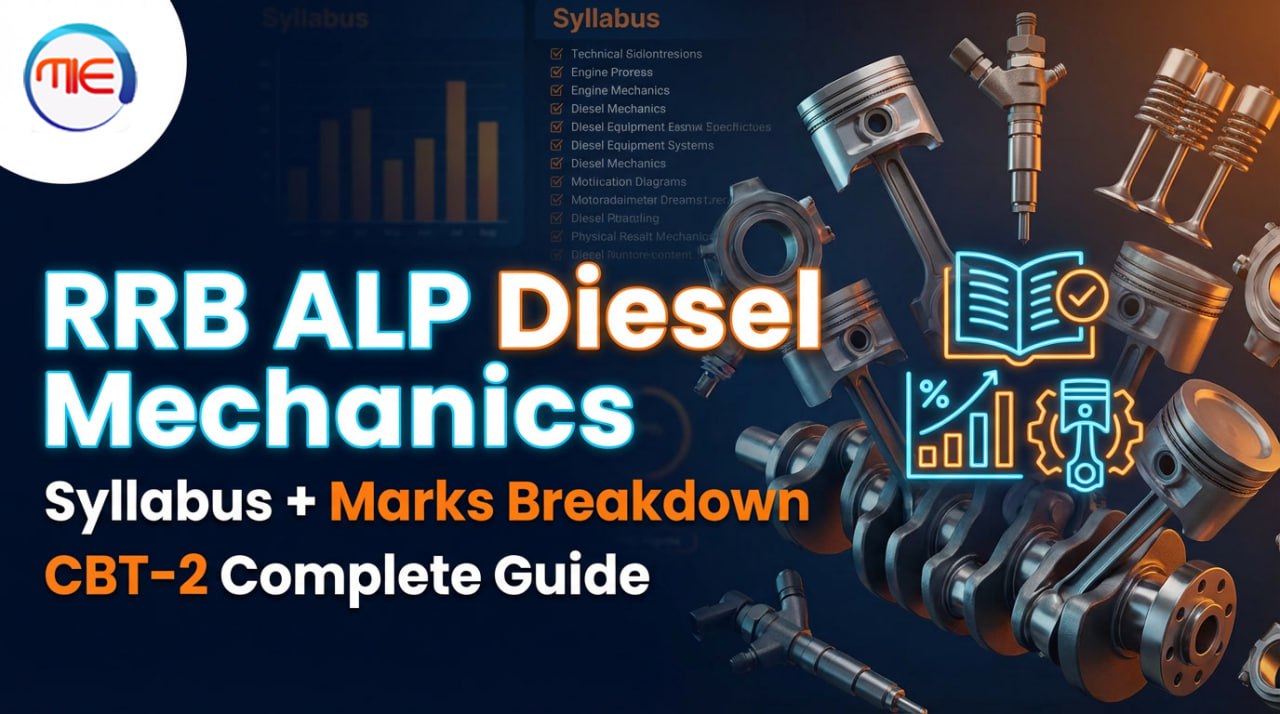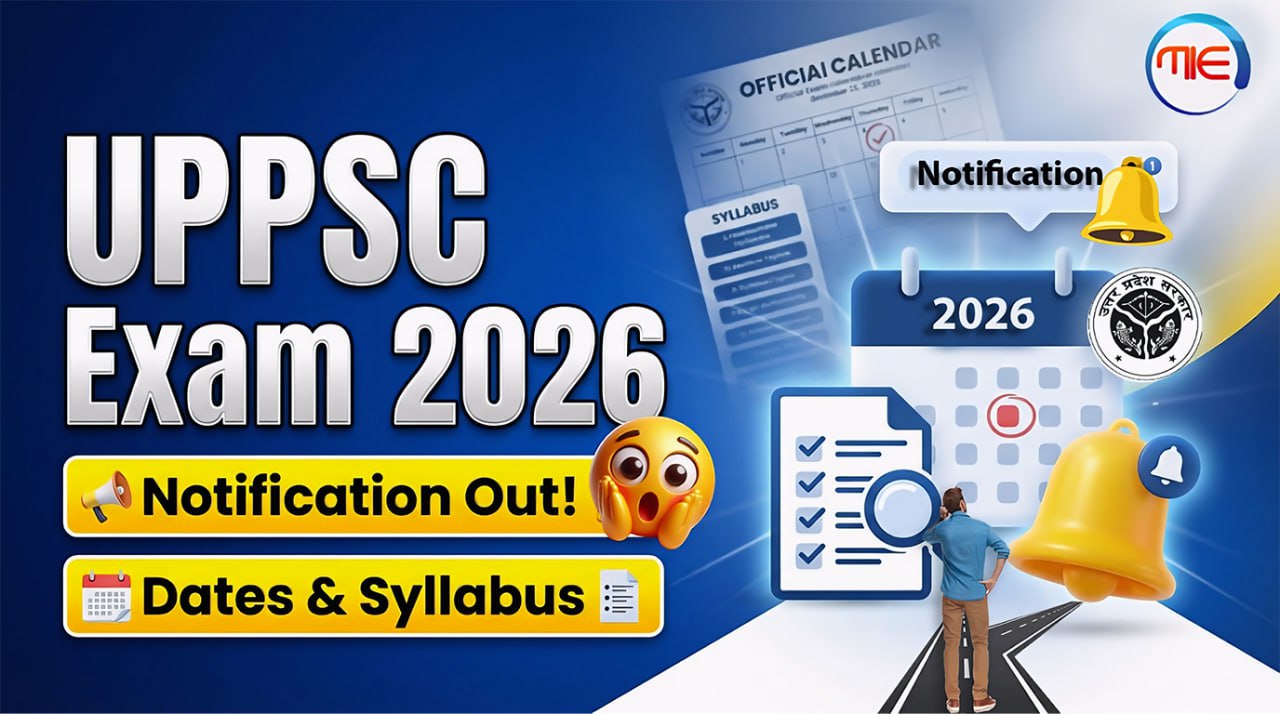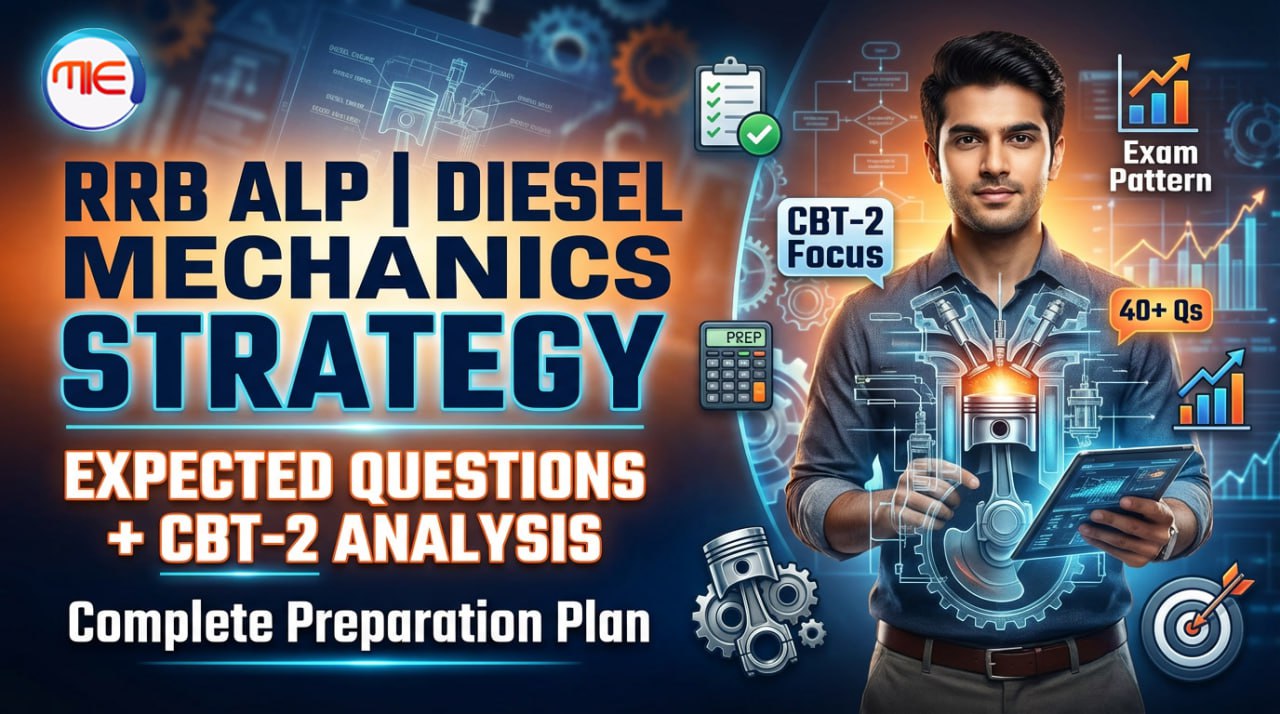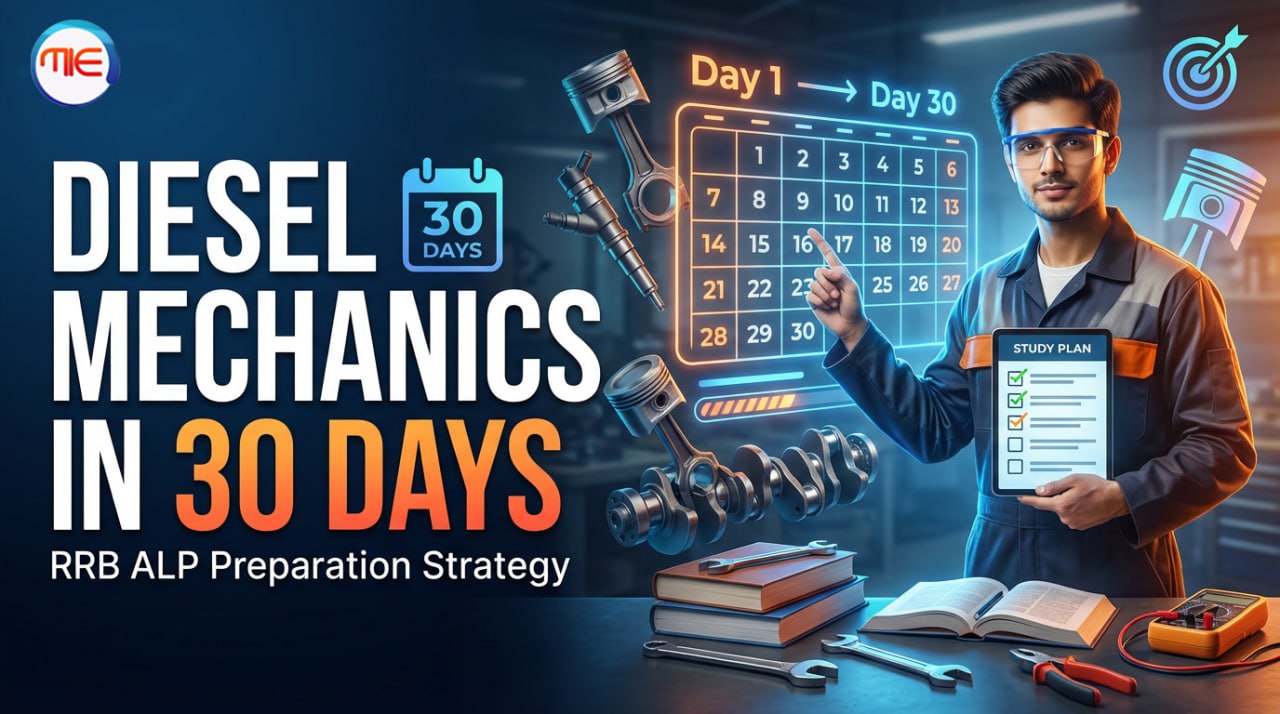The RRB JE (Junior Engineer) CBT-2 Re-Exam held in 2025 was one of the most eagerly awaited and discussed events among Railway Recruitment Board aspirants. After the initial CBT-2 exam faced administrative glitches, the re-exam provided candidates a fair chance to showcase their technical expertise and aptitude. In this blog post, we dive into a comprehensive analysis—section-wise difficulty, good attempts, expected cut-off trends, and aspirant feedback—to help you understand where you stand and how to strategize for the next phase.
Context & Overview of the RRB JE CBT-2 Re-Exam
In early 2025, thousands of aspirants appeared for the RRB JE CBT-2 (Junior Engineer Computer Based Test Level 2). Due to technical irregularities and a small paper leak in one region, the Railway Recruitment Board (RRB) decided to conduct a re-exam for all eligible candidates. Conducted in April–May 2025, the re-exam followed the same pattern as the original CBT-2:
Total Questions: 100
Total Marks: 100 (1 mark per question)
Sections:
General Intelligence & Reasoning (20 Qs)
General Awareness (15 Qs)
Technical Subjects (65 Qs)
Duration: 90 minutes
Negative Marking: ⅓ mark deducted for each incorrect response
The re-exam took place at over 100 RRB centers nationwide, with strict invigilation and updated question sets to ensure fairness.
Exam Pattern & Marking Scheme
| Section | Number of Questions | Marks | Weightage (%) | Duration | Negative Marking |
|---|---|---|---|---|---|
| General Intelligence & Reasoning | 20 | 20 | 20% | 90 minutes* | 0.33 mark/question |
| General Awareness | 15 | 15 | 15% | 0.33 mark/question | |
| Technical Subjects (Discipline-Wise) | 65 | 65 | 65% | 0.33 mark/question | |
| Total | 100 | 100 | 100% | 90 minutes |
Key Points:
Cut-Off Factor: Due to the re-exam’s large-scale disruption, the RRB ranked answers on a curve (normalizing scores from all centers) to ensure uniformity.
Negative Marking Impact: With ⅓ mark penalty, accuracy was crucial—guesswork could cost precious marks.
Technical Weightage: 65% of the paper focused on technical proficiency (Civil/Electrical/Mechanical/Signal & Telecommunication), making thorough domain knowledge non-negotiable.
A detailed breakdown of difficulty and aspirant reactions for each section:
| Topic | No. of Questions | Difficulty Level | Good Attempts (out of 20) |
|---|---|---|---|
| Seating Arrangement | 2 | Moderate | 1–2 |
| Puzzles (Linear, Circular) | 3 | Moderate | 1–2 |
| Syllogisms | 2 | Easy | 2 |
| Blood Relations | 1 | Easy | 1 |
| Coding-Decoding | 2 | Moderate | 1–2 |
| Number Series | 2 | Moderate | 1 |
| Direction Sense | 1 | Easy | 1 |
| Analogy | 2 | Easy | 2 |
| Classification | 1 | Easy | 1 |
| Ranking & Order | 1 | Moderate | 0–1 |
| Non-Verbal Reasoning | 3 | Moderate | 1–2 |
Overall Difficulty: Moderate. Puzzles and seating arrangement questions were time-consuming.
Aspirant Feedback: Many flagged that “Puzzles took 20–25 minutes if attempted thoroughly,” impacting time for other topics.
Good Attempts Range: Generally 13–15 attempted with high accuracy, since most questions were moderate to easy.
| Topic | No. of Questions | Difficulty Level | Good Attempts (out of 15) |
|---|---|---|---|
| Current Affairs (Last 6 months) | 4 | Moderate | 2–3 |
| Static GK (Indian Polity) | 2 | Easy | 2 |
| Static GK (Economy) | 2 | Easy-Moderate | 1–2 |
| Static GK (Geography) | 1 | Moderate | 1 |
| General Science (Fundamentals) | 2 | Easy | 2 |
| Railway Related (AGM/ORG) | 2 | Moderate | 1–2 |
| Miscellaneous (Awards, Books) | 2 | Easy-Moderate | 1–2 |
Overall Difficulty: Moderate. Emphasis on current events from October 2024 to March 2025.
Current Affairs: Questions on Gati Shakti Mission, Chandrayaan-4 launch window, Budget 2025 highlights, etc.
Good Attempts Range: 9–11. Aspirants who revised monthly current affairs scored well.
| Discipline | Topic | No. of Questions | Difficulty Level | Good Attempts (out of 65) |
|---|---|---|---|---|
| Civil | Strength of Materials | 5 | Moderate | 3–4 |
| Surveying & Levelling | 4 | Moderate | 3 | |
| RCC & Concrete Technology | 6 | Moderate-High | 3 | |
| Transportation Engineering | 4 | Moderate | 3 | |
| Fluid Mechanics & Hydraulics | 5 | Moderate | 3 | |
| Structural Analysis | 5 | High | 2 | |
| Environmental Engineering | 3 | Easy-Moderate | 2 | |
| Geotechnical Engineering | 4 | Moderate | 2–3 | |
| Building Materials & Construction | 4 | Moderate | 3 | |
| Estimation, Costing & Valuation | 3 | Moderate-High | 2 |
| Mechanical | Thermodynamics | 7 | High | 3 |
| | Theory of Machines | 6 | Moderate-High | 3 |
| | Manufacturing Processes | 5 | Moderate | 3 |
| | Machine Design | 5 | High | 2 |
| | Fluid Mechanics | 6 | Moderate | 3 |
| | Heat Transfer | 5 | Moderate | 3 |
| | Strength of Materials | 5 | Moderate | 3 |
| | Refrigeration & Air-Conditioning | 3 | Easy-Moderate | 2 |
| Electrical | Circuit Theory & Networks | 7 | Moderate-High | 3 |
| | Control Systems | 5 | Moderate-High | 2 |
| | Machines (DC, AC) | 6 | High | 2 |
| | Power Systems | 5 | Moderate | 3 |
| | Measurements & Instrumentation | 4 | Moderate | 3 |
| | Power Electronics | 4 | Moderate | 2–3 |
| | Switchgear & Protection | 4 | Moderate | 3 |
| S&T | Electronics Devices & Circuits | 6 | Moderate-High | 3 |
| | Communication Systems | 5 | Moderate | 3 |
| | Logic Gates & Digital Circuits | 5 | Easy-Moderate | 4 |
| | Microprocessors & Microcontrollers | 5 | Moderate-High | 3 |
| | Analog Circuits | 5 | Moderate-High | 3 |
| | Signal & Systems | 5 | Moderate | 3 |
| | Control Systems | 4 | Moderate | 3 |
Overall Difficulty: Moderate to High.
Civil & Mechanical: Topics like Structural Analysis, Machine Design, and Thermodynamics were notably challenging.
Electrical & S&T: Machine Design (Electrical) and Analog Circuits questions required conceptual depth.
Good Attempts Range:
Civil & Mechanical: ~40–45 correct
Electrical & S&T: ~42–47 correct
Technical accuracy was critical—minor calculation errors in civil/mech or forgetting a formula could cost you.
Below is a concise tabular snapshot of high-frequency topics across disciplines:
| Discipline | High-Frequency Topics | Question Type |
|---|---|---|
| Civil | Structural Analysis, Fluid Mechanics, RCC | Numerical problems, Conceptual MCQs |
| Mechanical | Thermodynamics Laws, Kinematics, Manufacturing Processes | Formula-based MCQs, Application-oriented |
| Electrical | Circuit Solutions, Machine Characteristics (e.g., torque-speed curves) | Derivation-based, Calculation-intensive |
| S&T | Digital Logic, Microcontroller Architecture, Communication Modulation Techniques | Diagrammatic understanding, Conceptual MCQs |
Example Question (Civil → RCC & Concrete Technology):
“A simply supported RC beam of span 6 m carries a uniformly distributed load of 5 kN/m. If the characteristic strength of concrete is 20 MPa and steel yield strength is 415 MPa, calculate the area of steel required.”
Example Question (Mechanical → Thermodynamics):
“In a Carnot cycle using steam as the working fluid, if the boiler temperature is 500 K and the condenser temperature is 300 K, what is the maximum theoretical thermal efficiency?”
Recognizing these patterns is crucial: aspirants who drilled past 20+ years of RRB JE PYQs found this section more predictable.
Good Attempts & Time Management
Managing 90 minutes across 100 questions—with ⅓ negative marking—was a challenge. Below is an aspirant-recommended time allocation and good attempts summary:
| Section | Time Allocation | Attempt Range (Good Accuracy) |
|---|---|---|
| General Intelligence & Reasoning | 20 minutes | 13–15 |
| General Awareness | 15 minutes | 9–11 |
| Technical Subjects | 55 minutes | 40–45 |
| Total | 90 minutes | 62–71 |
Key Time-Saving Tips:
Scan & Skip: Quickly scan reasoning puzzles—if it’s a lengthy seating arrangement, skip and attempt later.
Allocating Technical Time: Target 1 minute per question in technical section; mark high-weight topics (e.g., Fluid Mechanics, Thermo) for early attempts.
Accuracy Over Attempts: Aim for ~65 attempts with ~90–92% accuracy rather than 75 random guesses.
Aspirants who followed this allocation reported finishing with 5–7 minutes for revision and catching careless errors.
Expected Cut-Off 2025
RRB JE CBT-2 cut-off tends to vary year to year based on difficulty, number of vacancies, and normalization. Based on past trends and the re-exam’s difficulty:
| Category | Expected Cut-Off (Marks out of 100) |
|---|---|
| UR | 65–68 |
| OBC (NCL) | 62–65 |
| SC | 55–58 |
| ST | 50–54 |
| EWS | 64–66 |
| PwBD | 45–48 |
Notes:
Cut-off reflects normalized marks across centers.
Final cut-off may slightly shift (+/−2 marks) after normalization.
Aspirant Feedback & Key Takeaways
“Technical section was tougher on Data Interpretation and Applied Mechanics questions.”
“General Awareness was balanced—those who revised national budgets and railway-related GK scored well.”
“Reasoning puzzles were lengthy but doable if tackled first.”
“Time pressure in the last 10 minutes was real: double-checking marks and answers took extra time.”
Master Core Concepts: Technical questions often tested fundamental principles (e.g., bending moment in civil, circuit laws in electrical).
Revise Current Affairs Rigorously: Focus on Railway budgets, IRCTC updates, national policy changes between October 2024–March 2025.
Practice Mock Tests Under Real Conditions: Simulate 90-minute slots with negative marking to build speed+accuracy.
Develop Strong Time Management: Allocate strict time per section; avoid getting stuck in any one question.
Focus on High-Weightage Topics: List topics that carry more questions (e.g., Strength of Materials, Thermodynamics, Circuit Theory) and devote extra revision time.
Comparison with the Original CBT-2 Exam
| Aspect | Original CBT-2 (Early 2025) | Re-Exam CBT-2 (April–May 2025) |
|---|---|---|
| Question Paper Sets | Multiple sets (improper admin) | Fresh sets with enhanced security |
| Overall Difficulty | Moderate | Moderate to High (slightly tougher BBQ) |
| Normalization Process | Flawed (technical glitches) | Streamlined normalization across centers |
| Aspirant Confidence Level | Low (many rescheduled) | Higher (clear procedure, better invigil.) |
| Cut-Off Trends | Projected ~63 (UR) | Projected ~65 (UR) |
Insights:
The re-exam had stricter invigilation, reducing exam-related malpractices.
Some aspirants found question nuances slightly more challenging, especially in electrical machines and structural analysis.
Normalization was more transparent, and results were published with clear score distributions.
Preparation Tips for the Next Stage
If you cleared the re-exam and are gearing up for CBT-3 (document verification, medical, etc.), or plan to enhance your score for future RRB JE cycles, consider:
Deepen Technical Expertise: Go beyond formula memorization—understand derivations, real-world applications, and best practices.
Regular Revision Schedule: Maintain a weekly revision chart for technical notes, reasoning shortcuts, and GK flashcards.
Solve Previous Year PYQs: Attempt 5+ years of RRB JE CBT-2 PYQs to recognize recurring patterns.
Time Management Drills: Use online timers to practice sub-60-minute technical problem sets.
Mock Interviews & Document Prep: If advancing further, ensure your certificates (educational, category) are in order, and brush up on personal interview questions like “Why RRB?”, “Strengths & Weaknesses”, etc.
Health & Stress Management: Take regular breaks, practice yoga/meditation, and ensure adequate sleep to maintain peak performance.
Q1. Was there negative marking in the RRB JE CBT-2 Re-Exam?
A1. Yes. There was a ⅓ mark deduction for every incorrect answer. Unattempted questions incurred no penalty.
Q2. How many questions were asked from current affairs?
A2. 4–5 questions on current affairs, focusing on national events in the last 6 months (e.g., Budget 2025, Gati Shakti Mission, Chandrayaan-4 updates).
Q3. What was the difficulty level of technical questions compared to the original exam?
A3. The re-exam’s technical section was slightly more challenging, particularly on topics like Structural Analysis, Thermodynamics, and Electrical Machines.
Q4. What is the good attempt range for UR category?
A4. A safe good attempt range for UR aspirants was around 65–71 correct answers (with high accuracy) to be in the comfort zone for CBT-2 cut-off.
Q5. How is cut-off normalized across centers?
A5. RRB uses a statistical normalization process, adjusting raw scores from different sessions/centers to a common scale, ensuring no candidate is disadvantaged due to shift difficulty variations.
Q6. Which technical topics should aspirants focus on for improvement?
A6. High-weightage technical topics include:
Civil: Strength of Materials, RCC, Fluid Mechanics
Mechanical: Thermodynamics, Theory of Machines, Machine Design
Electrical: Circuit Theory, Electrical Machines, Power Systems
S&T: Digital Logic, Microprocessors, Communication Systems
The RRB JE CBT-2 Re-Exam Analysis 2025 highlights that accuracy and strategic time management were the keys to scoring well. With a slightly tougher technical section and a well‐balanced reasoning and GK portion, aspirants who prepared systematically and stayed calm under pressure managed to clear the cut-off.
Call to Action:
If you haven’t checked your normalized score, log in to the RRB portal and download your scorecard.
Aspirants aiming for future RRB JE cycles must use this analysis to identify strengths and weaknesses.
Start a targeted revision plan today—focus on your weaker technical areas and keep current affairs updated.
Best of luck to all aspirants! Stay consistent, stay focused, and you’ll soon wear that RRB JE badge with pride.

Makeiteasy










Leave a Comment